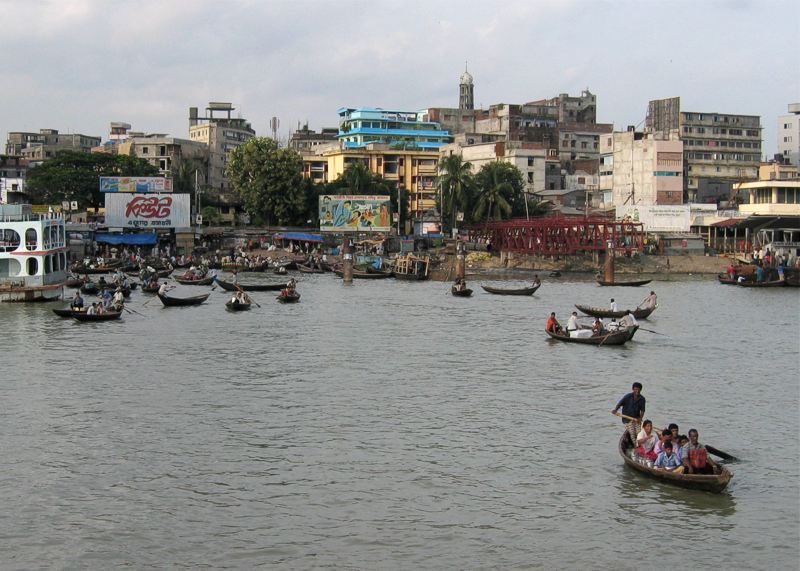
Rajiv Chowdhury will be joint Principal Director of CAPABLE - a major public health programme in Bangladesh.
Almost 80 per cent of the global population live outside of western countries. In these lower and middle income countries we have the majority of global cases of heart and circulatory disease. But the research that has been done in those countries has been minimal.
Rajiv Chowdhury
A Gates Cambridge scholar will be Scientific Director of an £8m four-year programme to address public health and environmental risks in Bangladesh.
Dr Rajiv Chowdhury will be joint Principal Investigator on CAPABLE [Cambridge Programme to Assist Bangladesh in LIfestyle and Environmental risk reduction], a programme which will see researchers from the UK and developing countries working together as equal partners.
The £8M grant from the Global Challenges Research Fund of the Research Council UK, announced last week, will enable the establishment of a 100,000-person cohort study from across Bangladesh to study their long-term health. Bangladesh has had considerable success in cutting child mortality and fertility rate in recent years, but it faces an onslaught of chronic diseases that arise from an interplay of factors ranging from arsenic-contaminated drinking water to iron-deficient foods and from air pollution to the rise of the western lifestyle.
CAPABLE will gather data from the cohort and engineers, sociologists, health researchers and a host of other disciplines will try to understand how the risk factors interact – and build a model that can be used to test interventions before they are implemented.
“We aim to help develop simple, scalable and effective solutions to control major environmental and lifestyle risk factors in Bangladesh,” says Dr Chowdhury who is based at the Department of Public Health and Primary Care at the University of Cambridge.
He was earlier also awarded a £400k grant as principal investigator from the Newton Fund to set up a new cardiovascular study in Malaysia called the MAVERIK [the Malaysian Acute Vascular Events RIsK] study. The study will evaluate the cardiovascular risk factors of specific relevance to the Malaysian population, such as indigenous forms of tobacco consumption and local dietary patterns, with potential implications of results for public health policy.
Speaking about his research, Dr Chowdhury told the British Heart Foundation recently: “Almost 80 per cent of the global population live outside of western countries. In these lower and middle income countries we have the majority of global cases of heart and circulatory disease. But the research that has been done in those countries has been minimal.”
He added: “While important genes are often discovered in specific populations, they offer crucial insights into the mechanisms of disease as a whole, and therefore can progress medicine by developing new drugs that can target those pathways. And if we discover new genes, which can help us develop new drugs, that is very important to western medications and western populations too.”
Dr Chowhury [2009] did his PhD in Public Health and Primary Care and was the first Gates Cambridge Scholar to be awarded the Bill Gates Senior Prize in recognition of his work.
*Picture of Dhaka c/o Wikimedia Commons.

Rajiv Chowdhury
- Alumni
- Bangladesh
- 2009 PhD Public Health and Primary Care
- Queens' College
My PhD research will focus on various lifestyle, behavioural and genetic risk factors of cardiovascular disease in South Asian countries such as Bangladesh and Pakistan, based on collaborative primary studies between Cambridge and local leading cardiovascular facilities. These are countries which, despite huge vascular disease burden, remain largely unaddressed. Comprehensive evidence expected from this work should contribute importantly to scientific understanding, to the development of locally appropriate strategies to prevent and control the disease, and to the efficient use of scarce resources for vascular prevention in low-income countries. Additionally, as a scientific coordinator of a large consortium of UK-based cohorts (CNC, comprising over 100,000 participants), I am investigating the roles of diet and nutrigenetics to increase cardiovascular risk in Western population.
Previous Education
University of Cambridge MPhil in Epidemiology 2007
University of Dhaka MBBS 2002
Links
http://www.phpc.cam.ac.uk/people/ceu-group/ceu-senior-research-staff/rajiv-chowdhury












